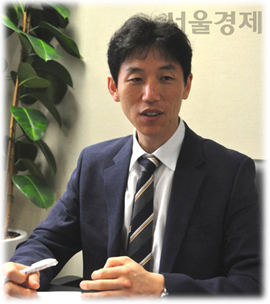| 일 | 월 | 화 | 수 | 목 | 금 | 토 |
|---|---|---|---|---|---|---|
| 1 | 2 | 3 | ||||
| 4 | 5 | 6 | 7 | 8 | 9 | 10 |
| 11 | 12 | 13 | 14 | 15 | 16 | 17 |
| 18 | 19 | 20 | 21 | 22 | 23 | 24 |
| 25 | 26 | 27 | 28 | 29 | 30 | 31 |
- Task Delegates of the Ruler: Inner Circle
- Mathematical Model of political science
- 1st Law of politics
- mechanism of politics
- politics of Inner Circle
- Political power
- new political science
- Cohesion Force
- Samjae Capacities
- political phenomena
- Regime Change
- survival process theory
- Samjae Capacity
- Power
- Orderliness of Choice
- Value Systems
- Political Change
- Canonical Politics
- the 3rd Law of politics
- Operation of the 2nd Law
- Political Regimes
- power and organization
- Differences in Individual Abilities and Tendencies
- politics and war
- political organization
- politics
- the 2nd law
- Mathematical Model of politics
- Order of Choice
- Political Regime
- Today
- Total
New Political Science
a. ㉡ Theoretical System 본문
㉡ Theoretical System
Secondly, the theoretical system exists as an influential academic field, consisting of a logical conceptual system shared by a group's leadership or intellectuals. Examples of this include liberal democratic political theory, capitalist economic theory, sociology theories by Max Weber or Marx, and Neo-Confucianism in the Joseon Dynasty. The theoretical system is an element of ideological capacity that continuously exerts influence at an intermediate scale.
Just as 7th-century British clergymen converted after hearing Paulinus' sermons on Christian doctrine, and many Korean intellectuals were captivated by the logic of communist theory and defected to North Korea during the chaotic period following liberation, the theoretical system greatly influences the reinforcement and transformation of beliefs. Of course, the politically important aspect is the beliefs and actions of the masses, and since many of these people cannot understand complex theoretical systems, it may seem that the political influence of the theoretical system is hollow. However, in the long run, the masses change their beliefs according to social authority, and that social authority is determined by intellectuals and their theoretical systems. Although it may take some time, these intricate theoretical systems eventually affect the political choices of the general public.
Practical political actors utilize theoretical systems by reinterpreting established religious beliefs, ideologies, or dominant academic systems to rationalize themselves. In the medium term of political activities, political actors attempt to change such theoretical systems by nurturing scholarly groups, sometimes successfully. After the founding of the Joseon Dynasty, Jeong Dojeon criticized Buddhism in various ways to undermine the Buddhist value system that had dominated the late Goryeo period. Through this criticism, Jeong became a core figure of the Gwanhak faction, which was central to the early Joseon power structure. The Mao Zedong and Deng Xiaoping thought, considered Chinese-style Marxism, is also a value system reinterpreted at the academic and theoretical level. Mao Zedong and Deng Xiaoping emphasized the importance of theory as a tool for practice rather than attributing any intrinsic value to Marxist theory itself. Now, this theoretical system has penetrated the daily lives of modern Chinese people, becoming a common belief.
'Mechanism of Politics' 카테고리의 다른 글
| b. ㉠ Political Utilization of Value Systems (0) | 2023.12.18 |
|---|---|
| a. ㉢ Cultural Activities (0) | 2023.12.18 |
| a. ㉠ Fundamental Beliefs (0) | 2023.12.18 |
| a. Social Structure of Value Systems (0) | 2023.12.18 |
| (3) Phenomenology of Political Ideology (0) | 2023.12.18 |



